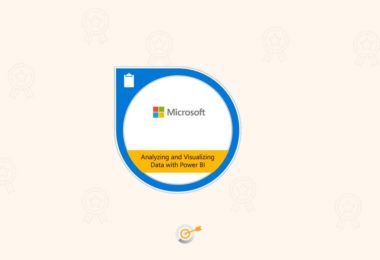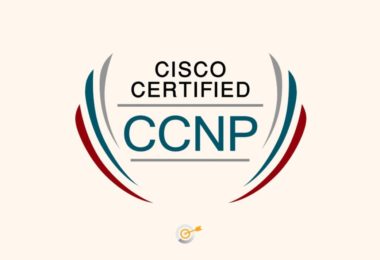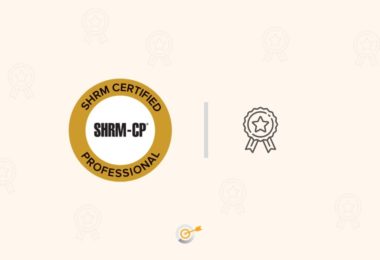Overview of PMP
Project Management Professional (PMP) course is administered by the Project Management Institute. This certification is one of the most widely recognized certifications for project managers. This certification is especially for those organizations that employ one or more forms of agile structure. Project managers are usually outside the traditional hierarchy of verticals. They head teams drawn from various verticals within the organization. These teams are catered to designing and implementing the unique solution that each project demands.
This credential provides managers and customers with the assurance that a project manager is suitably equipped the knowledge and experience required. PMP also gives professionals the right knowledge, tools, and techniques to plan, execute, and deliver projects. PMP is so valuable that it is very often the deciding factor in allotment of more responsibility and authority within the organization. Because of its vast importance, it isn’t reliant on just knowledge. It also needs project management experience as a prerequisite.
Is This Certification Right for You?
A project management professional certification has stringent pre-requisites. It also requires considerable investment financially. So, this certification is useful for project managers who have experience dealing with, and heading, a lot of projects.
Several companies also insist that project managers complete various certifications depending on the job role. If you want to climb up in your company, perform more value-added services, or just stay abreast of the current skills and knowledge, then PMP certification is for you.
What are the Eligibility Criteria for PMP Certification?
To become eligible for attempting the project management professional certificate, there are two different approaches you can take.
The first one assumes you have at least 36 months of non-overlapping, unique graduate degree education after high school. In case you do, then you need to spend 4500 hours gaining professional experience. Assuming an 8-hour working day for 5 days a week and accounting for holidays, you’ll need to spend about 3 years gaining experience in a project management field.
One important thing to note here is your title need not be a project manager. You should just direct or head teams that are working on providing solutions to clients. After you have that experience, you need 35 contact hours of formal PMP certification as validated by the PMI’s 4-day rule.
The second assumes that you don’t have a bachelor’s degree or anything equivalent. For this, you need a high school diploma, an associate’s degree, or any other global equivalent. In this case, you need about 7500 hours of unique, non-overlapping professional experience.
Once again, assuming an 8-hour work day for a 5-day work week, and accounting for holidays, you’ll need to garner about 5 years’ worth of experience in project management. Just as it is in the previous one, your job title need not be a project manager. You just need to head or direct team activities in line with project manager duties.
One thing that remains constant is that you still need 35 contact hours of formal PMP certification as validated by the PMI.
Recommended Articles ;
7 Unbelievable Project Management Skills that Might Surprise Independent Freelancers
How to Be a Freelance Project Manager
Best Project Management Tools for Freelancers
What is the Certification Process for PMP?
There is no separate certification process for a project management professional. After meeting the eligibility criteria mentioned above, professionals can apply for the exam. You can apply for the exam online at certification.pmi.org. You wait for 5 days and then pay the examination fee. After that you have 90 days to upload the relevant documents.
These documents include proof of experience, proof of contact training, and a proof of your degree. About 5% – 10% of the documents are audited when applied for the exam. If everything checks out, you’ll get an authorization email. This email will provide you a link to Pearson Vue website. This is a validation for sitting for the PMP exam.
It is important to realize that this exam is a standalone exam, and as such, does not have separate levels or modules.
| Also Read: High Paying IT Certifications You Must Know |
What is the Cost of the Certification?
There is an option to become a PMI member. This membership costs you $139. If you’re a member, then you have to pay $405 for the certification. But if you’re not a member, then you’ll have to pay $555 for the examination.
You can attempt to pass the exam 3 times if you couldn’t finish it the first time, within a year. If you still couldn’t pass them, then you’ll have to wait a mandatory one year before you can attempt the exam again. For a re-examination for the second or third time, you’ll need to pay to sit for the exam. It is $275 for members and $375 for non-members.
How Long Does an PMP Certification Last?
A PMP certification has a cycle of 3 years. During that time, you’ll have to adhere to the rules of Continuous Certification Requirements (CCR) program. As part of this program, you’ll have to earn 60 Professional Development Units (PDUs).
Your three-year cycle begins the day you pass the exam. If you can’t obtain the required 60 PDUs, then your certification will be suspended for a year, and after that, it’ll be invalid. If you manage to acquire the required 60 PDUs, you can renew your certification by paying PMI $60 if you’re a member and $150 if you’re not a member. Your cycle of three years continues with each year ending on the anniversary of your passing the exam.
What are the Salaries and Job Opportunities for PMP Certification?
The average salary for a project management professional certified individual is about $80000(1). The highest ranged up to $150000 while the lowest reported salary, at the 25th percentile, was $60000. That means, 75% of the certified professionals earned more than $60000. Professionals who got their PMP certifications earned, on an average, 24% more than project managers who were not certified. Compared to average American households, certified PMPs earned more than double the take-home salary. This provides PMP with a competitive edge.
Where to Get Resources for PMP?
PMI offers a lot of resources for individuals aspiring to prepare for the exam. In addition to this, there are three types of contact training – classroom training, self-learning or online coaching, and live, in-person teaching. Of the three, usually self-learning is the cheapest. There are so many websites that offer the required classes. Several prominent websites like Udemy and Coursera also have materials for preparation. Apart from them, several other websites offer you resources. When selecting each one, make sure you understand what parts of the syllabus they cover.





